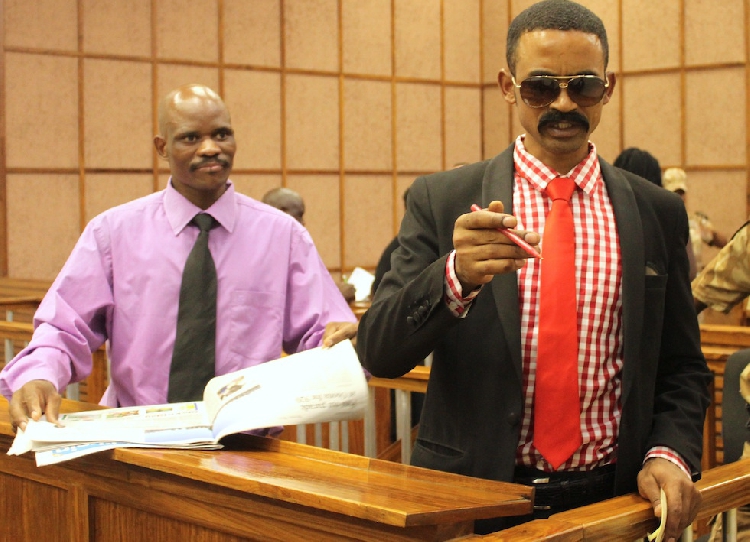THE two men whose skeletal remains were discovered in a disused well in the Kalkrand area in July 2009 were killed in a brutal and callous way, a prosecutor said in the Windhoek High Court this week.
When Raynoldt Windstaan and Johannes Eichab threw their victims, Klaas Titus (42) and John McNab (39), into a well after they had seriously assaulted them, they knew Titus and McNab’s chances of getting out of the well without help were zero, state advocate Erick Moyo remarked on Monday while addressing judge Naomi Shivute on the sentences that are to be handed to Windstaan and Eichab.
It was important to note that judge Shivute found – in the judgement in which she convicted Windstaan and Eichab on two counts of murder at the end of November last year – that Titus and McNab were still alive when they were thrown into the well, Moyo said.
It was callousness of the worst order for them to have been left in the well to die, he added.
Titus and McNab went missing in July 2005. Four years passed before their remains were found in a disused well at a farm in the Schlip area between Rehoboth and Mariental at the end of July 2009.
In her verdict in the trial of Windstaan (34) and Eichab (36), who denied that they murdered the two men, judge Shivute found that the evidence before her showed Titus and McNab had been assaulted by Windstaan and Eichab at Omamas, situated west of Kalkrand, during the period of 16 to 18 July 2005, and that they were then taken to a farm about 60 kilometres from there and thrown into the well while still alive.
According to evidence heard during the trial, Windstaan told a magistrate at Mariental in August 2009 that the two men had been killed to prevent them from becoming witnesses in a stock theft case.
Moyo addressed the judge after calling a daughter of McNab, Lee Carew, to the witness stand to give evidence in aggravation of sentence.
Carew testified that she learned that her father had been murdered when she saw a newspaper report on it in July 2009.
She said she was still struggling to come to terms with the death of her father, who was a welder by profession and was divorced from her mother, and could not comprehend how anyone could do to someone else what had been done to her father when he was killed.
She could also not comprehend why Windstaan and Eichab would not apologise over the killing, Carew said. When asked what sentence she wanted to see imposed on the two convicted men, she answered that they should be imprisoned for life.
In his address to the court, defence lawyer Joshua Kaumbi noted that Windstaan has been in custody for more than seven years, while Eichab has been in jail for more than six years. Taking into account the number of years the two men have already been behind bars, prison terms of 10 years on each of the two murder counts on which they were convicted would be appropriate, Kaumbi argued.
Moyo suggested they should be sentenced to 35 years’ imprisonment on each of the two charges. Considering the length of time that Windstaan and Eichab have already been in jail, the court has the discretion to order that part of the sentences should run concurrently, he said.
Judge Shivute postponed the sentencing to Friday next week.
Stay informed with The Namibian – your source for credible journalism. Get in-depth reporting and opinions for
only N$85 a month. Invest in journalism, invest in democracy –
Subscribe Now!







